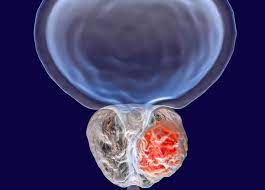Professor Enoch Afolayan, of the Department of Pathology, University of Ilorin, Kwara State said on Thursday that cancer cannot lead to death if detected and treated early
Afolayan said this in Ilorin while delivering the 212th Inaugural Lecture of the University entitled: “Cancer! The Sledge Hammer of Death?, No, Not a Death Sentence, if……”.
He explained that cancer could be curtailed and treated if reported, diagnosed, and `battled` at the earliest possible time.
He said that many people have died from cancer if it was not detected and treatment commenced early enough.
The expert said cancer had become a global health challenge and called for concerted efforts towards scaling up activities on its prevention, diagnosis, and treatment.
He said that: “cancer begins as a tumour, which grows slowly and neither reoccurs nor progresses once removed surgically and does not usually result into death.
“Cancer incidents and mortality are rapidly increasing across the globe and the current estimation of new cases is 19.3 million while 9.9 million of cancer-related deaths were recorded in 2020”.
Afolayan further said the increase in cases of cancer could be attributed to aging and rapid growth of population worldwide and increased industrialisation, which exposed huge population to causative factors.
He said that 60 percent of the global cancers occurred in Africa, Asia, and Central America while 70 percent of cancer-related deaths came from the identified regions.
According to the scholar, said the survival rates were low in the low and middle-income countries.
To reduce the incidence of cancer, Afolayan encouraged the adoption and inculcation of what he called the 10 commandments of cancer prevention.
He advised against smoking cigarettes, which he said accounted for 19 percent of all cancer cases and 29 percent of cancer deaths.
He also said that excessive body weight should be avoided because of its negative contributions amounting to 7.8 percent of cancer cases and 6.5 percent of cancer deaths.
“Other critical causes of cancer and associated with deaths are alcoholic consumption, eating of red and processed meat, and consumption of diets, which have low fruits and calcium contents.
“People should engage in consistent physical activities and avoid continuous exposure to ultraviolet radiations,” he said.
Afolayan also encouraged people to ensure that they make quality sleep a
priority and that food containing Vitamin D should also be priotised.
He suggested that the treatment of cancer should be subsidized, advocating that it should be included in the National Health Insurance Scheme.
He canvassed the establishment of cancer treatment centres nationwide.

